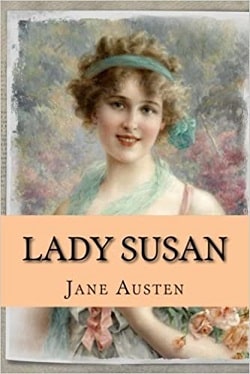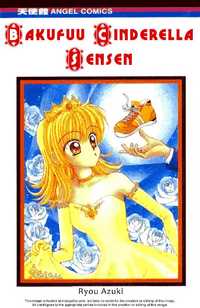Summary

Lady Susan
by Jane Austen
Unabridged
Beautiful, flirtatious, and recently widowed, Lady Susan Vernon seeks an advantageous second marriage for herself, while attempting to push her daughter into a dismal match. A magnificently crafted novel of Regency manners and mores that will delight Austen enthusiasts with its wit and elegant expression.
.
Read
Lady Susan on http://kissnovel.net
Martial Peak Reviews
Jane Austen's Lady Susan is a captivating novella that showcases the author's keen insight into human relationships and societal norms of the Regency era. Written in epistolary form, the narrative unfolds through a series of letters, allowing readers to delve into the minds and motivations of its characters. The story revolves around the titular character, Lady Susan Vernon, a beautiful and cunning widow who is determined to secure a prosperous second marriage for herself while simultaneously maneuvering her daughter, Frederica, into a less than desirable match.
One of the most striking aspects of Lady Susan is its exploration of feminine agency within a patriarchal society. Lady Susan is a complex character who defies the conventional expectations of women in her time. Rather than being passive or submissive, she is proactive and strategic, using her charm and wit to manipulate those around her. Her character serves as a critique of the limited options available to women, as she navigates the treacherous waters of social standing and financial security. Austen's portrayal of Lady Susan is both fascinating and unsettling; she is a woman who understands the game of marriage and is willing to play it to her advantage, even at the expense of her daughter's happiness.
The theme of marriage is central to the novella, as it often is in Austen's works. However, in Lady Susan, the institution of marriage is depicted in a more transactional light. Lady Susan's relentless pursuit of a wealthy husband highlights the economic motivations behind many marriages of the time. The contrast between her ambitions and Frederica's more romantic notions of love creates a tension that drives the narrative forward. Frederica, who is initially portrayed as timid and vulnerable, gradually emerges as a character with her own desires and aspirations, challenging her mother's manipulative tactics.
Austen's use of letters as a narrative device adds a layer of intimacy and immediacy to the story. The correspondence between characters reveals their true thoughts and feelings, often contrasting sharply with their public personas. For instance, the letters exchanged between Lady Susan and her friend, Alicia Johnson, provide insight into Lady Susan's cunning nature and her views on love and marriage. This format allows readers to witness the duplicity and intrigue that permeate the social interactions of the characters, making the story feel both personal and universal.
The character development in Lady Susan is particularly noteworthy. Lady Susan is not merely a villain; she is a product of her environment, shaped by the societal pressures and expectations placed upon women. Her relationships with other characters, such as her brother-in-law, Mr. Vernon, and her suitors, reveal the complexities of her personality. Mr. Vernon, who is often exasperated by Lady Susan's antics, serves as a foil to her character, embodying the more traditional values of the time. His attempts to rein in her behavior highlight the tension between societal norms and individual desires.
Another significant character is Reginald De Courcy, who becomes embroiled in Lady Susan's schemes. His initial infatuation with her quickly turns to disillusionment as he uncovers her true nature. This transformation is emblematic of the broader theme of perception versus reality that runs throughout the novella. Austen deftly illustrates how appearances can be deceiving, and how the characters' judgments are often clouded by their desires and biases.
The novella's conclusion is both satisfying and thought-provoking. Lady Susan's ultimate fate serves as a commentary on the consequences of her manipulative behavior. While she achieves her goal of securing a wealthy husband, the cost of her actions is evident in her strained relationships with her daughter and others. This resolution invites readers to reflect on the moral implications of Lady Susan's choices and the societal structures that enable such behavior.
In comparison to Austen's other works, such as Pride and Prejudice and Emma, Lady Susan stands out for its more overtly cynical view of marriage and social maneuvering. While characters like Elizabeth Bennet and Emma Woodhouse ultimately find love and personal growth, Lady Susan's journey is marked by a more self-serving approach. This divergence from Austen's typical romantic narratives adds depth to her oeuvre, showcasing her ability to tackle a range of themes and character types.
Overall, Lady Susan is a brilliant exploration of the complexities of love, marriage, and female agency in a restrictive society. Austen's sharp wit and keen observations make this novella a delightful read, rich with social commentary and character insight. The interplay of manipulation, desire, and societal expectation creates a narrative that resonates with contemporary readers, reminding us of the timeless nature of these themes.
For those who appreciate Austen's work, Lady Susan offers a fresh perspective on her literary genius. It is a testament to her ability to craft multifaceted characters and intricate plots that challenge societal norms while remaining engaging and entertaining. Whether you are a long-time Austen enthusiast or a newcomer to her writing, Lady Susan is a must-read that will leave you pondering the intricacies of human relationships long after you turn the final page.
























Reviews 0
Post a Reviews: